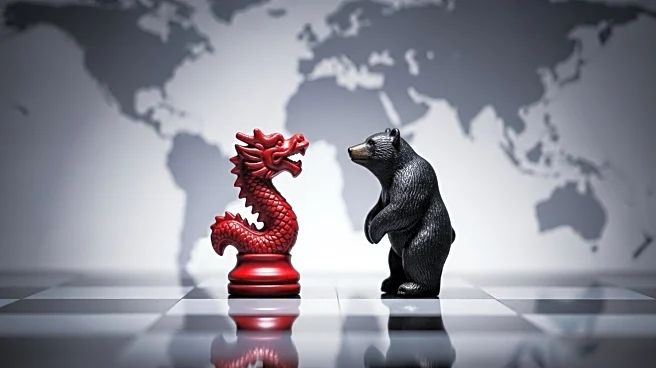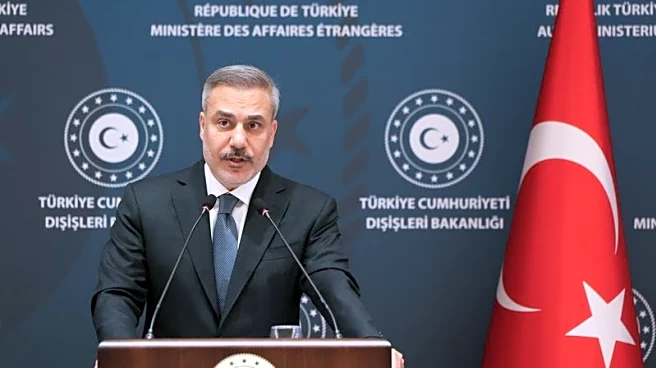What's Happening?
Chinese President Xi Jinping and Russian President Vladimir Putin showcased their close partnership at the Shanghai Cooperation Organization summit in Tianjin, China. Xi criticized 'bullying practices' and positioned China as a leader in global governance, opposing U.S.-led alliances and advocating for a multipolar world. The summit, attended by leaders from over 20 countries, emphasized China's vision for a more equitable global order. Xi pledged financial support to SCO member states and introduced a Global Governance Initiative to enhance the representation of developing countries.
Why It's Important?
China's push for a new global governance model challenges the existing U.S.-led world order, potentially reshaping international relations. By aligning with Russia and other SCO members, China seeks to expand its influence and promote multilateralism. This shift could impact global trade, security, and diplomatic dynamics, as countries navigate the changing geopolitical landscape. The emphasis on developing countries' representation highlights China's strategic focus on building alliances with the Global South.
What's Next?
China's efforts to position itself as an alternative global leader may lead to increased tensions with the U.S. and its allies. The success of China's initiatives will depend on its ability to garner support from other nations and effectively implement its vision for global governance. As the geopolitical landscape evolves, countries may need to reassess their alliances and strategies to adapt to the emerging multipolar world order.










